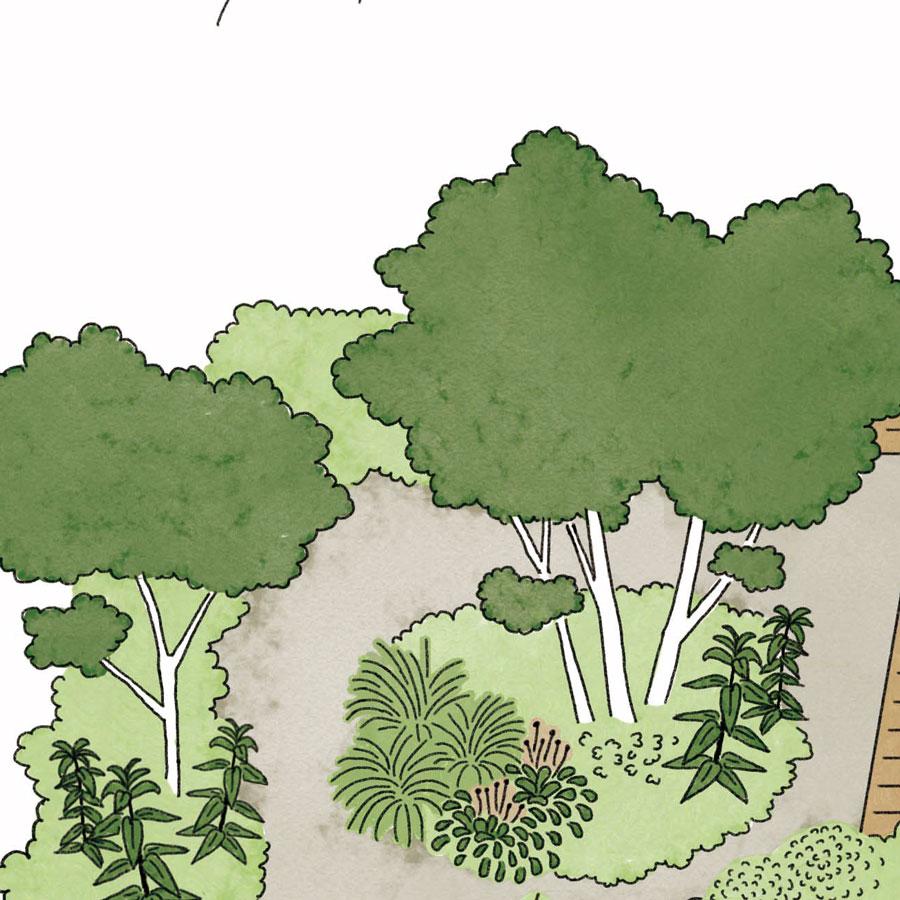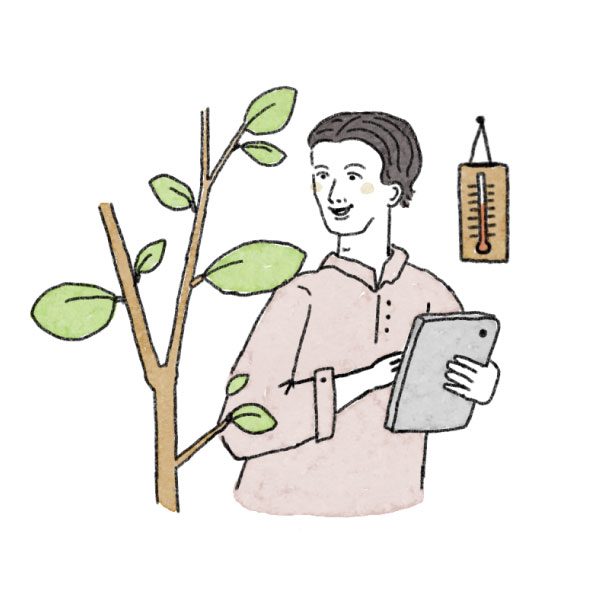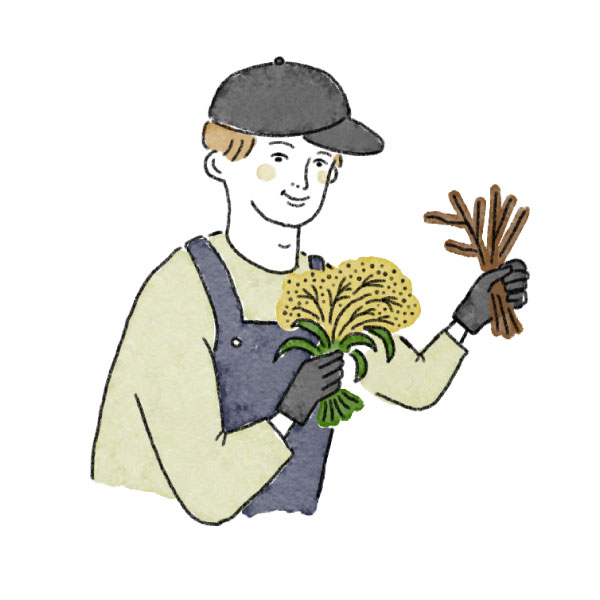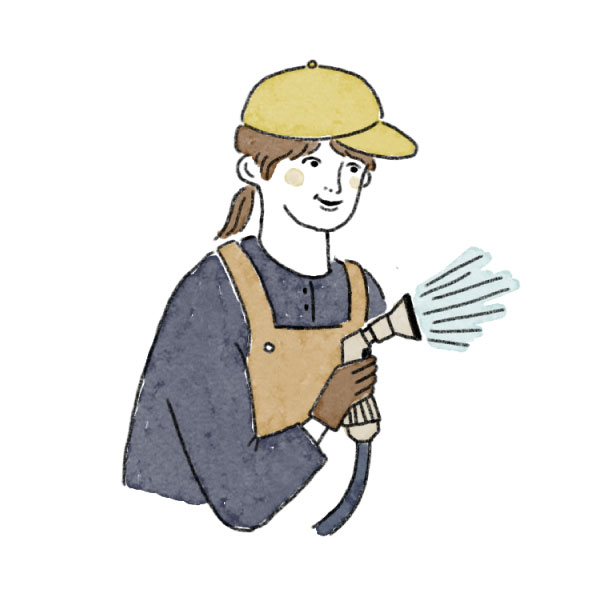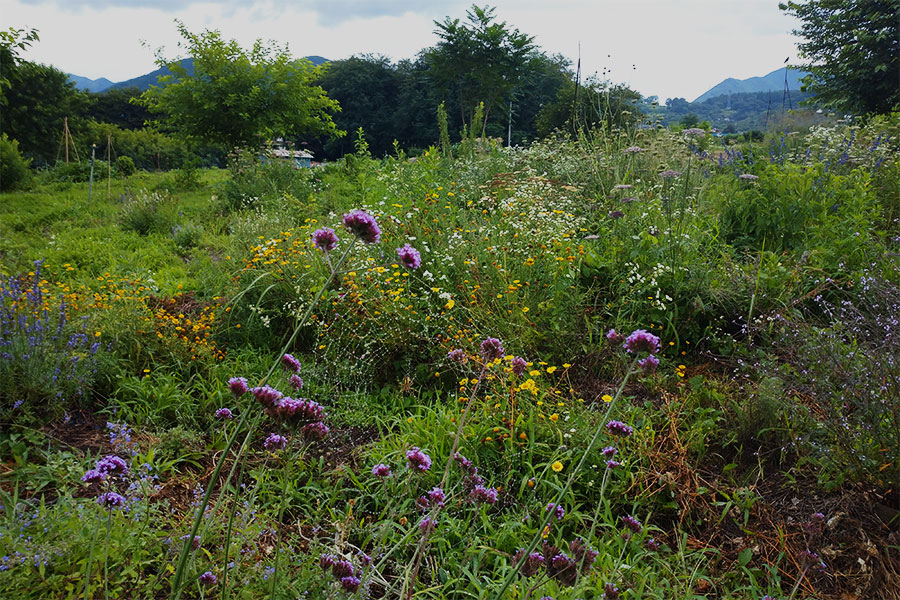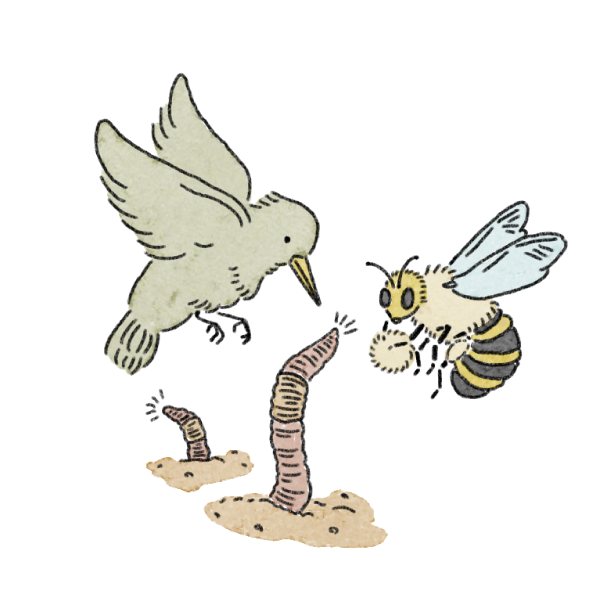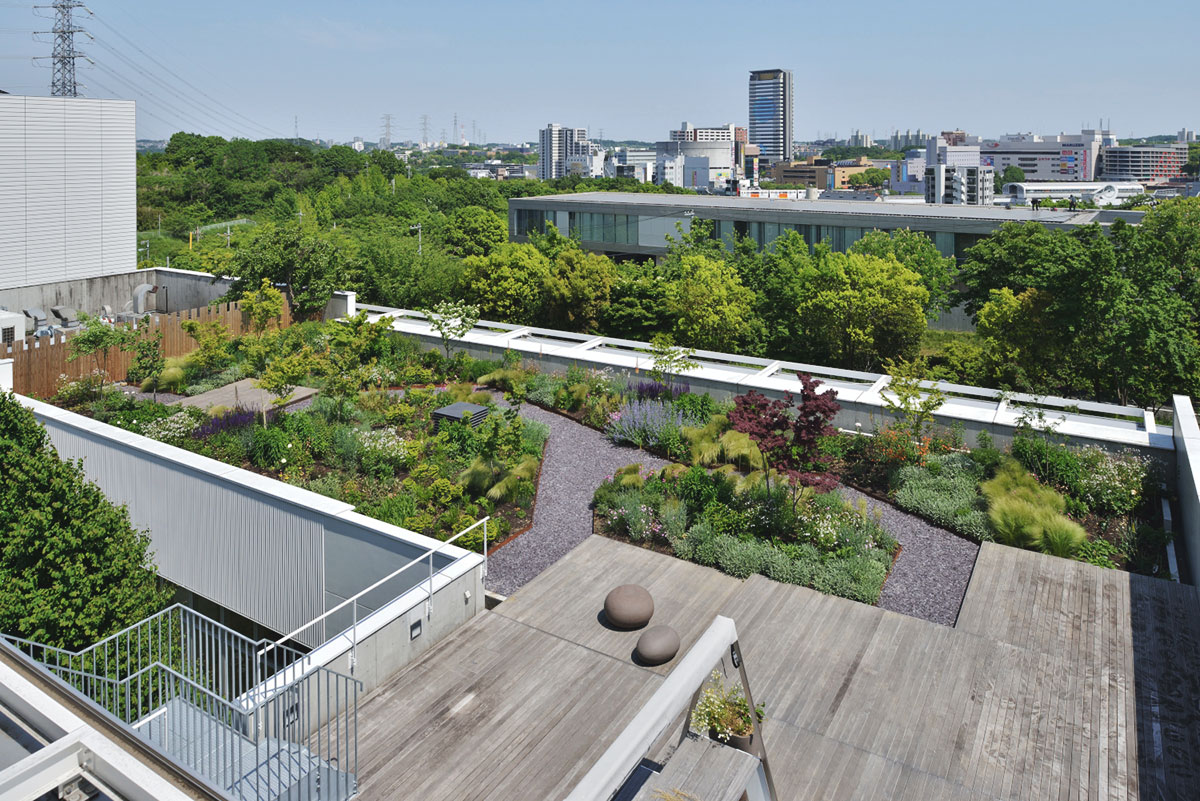Thanks to our carefully designed green roof above the Green Wise head office, the room temperature in the building was reduced by up to 3.4 degrees in summer, and raised by up to 6.1 degrees in winter, resulting in a 5.3% reduction in annual electricity consumption.
With a Slow Green philosophy, Green Wise celebrates the beauty of the natural world which is rooted in people’s lives. Through the respect for the environment, and desire to improve the quality of sustainable life, we have been developing the guiding principle of our activities to “Be natural, connect with nature, and nurture our daily life”. As such, all activities and services which we provide aim to have a positive effect on the natural environment with green as our main focus.
In this Environmental Report, we introduce our efforts, such as rooftop greening, energy circulation, and the use of fallen leaves and branches.

